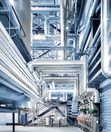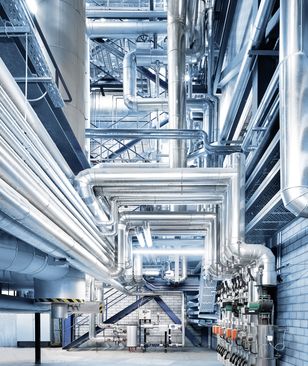Asia
EMEA

LANXESS Canada Contacts
Contact our Sites in Canada
Media Inquiries
General Inquiries
Please click here to e-mail LANXESS Canada with product inquiries and general requests.
Global Press Releases
2011-06-06
LANXESS at the Singapore International Water Week, July 4-8, 2011, Hall 601, stand 6B08
Small beads provide clean water
Expertise in ion exchange resins for the Asian market
German specialty chemicals company LANXESS is participating this year for the first time in the Singapore International Water Week (SIWW), taking place from July 4 to 8, 2011. The event serves as a forum for political, municipal, industry and science experts to discuss current findings and challenges relating to water, our most precious resource. The Ion Exchange Resins business unit of LANXESS will showcase its premium range of ion exchange resins, adsorbers and functional polymers, under the Lewatit brand name, for the treatment of industrial water, wastewater and municipal water in Singapore and across the ASEAN region.
“Efficiently and competently managing water resources is an urgent priority worldwide. With our products, technologies and expertise, we want to contribute to using this resource more responsibly, by sustainable means, and in tune with the environment,” commented Jean-Marc Vesselle, head of the Ion Exchange Resins (ION) business unit of LANXESS.
Beryn Adams, Regional Technical Manager at LANXESS Pte. Ltd. in Singapore, said the Asian region in particular faces major challenges in water management. At the same time, he expected significant and sustainable market growth in the region as well: “The rapid industrial growth here alone will steadily boost demand for ion exchange resins. With the tightening of environmental legislation, more and more companies are looking into high-performance solutions for their waste water treatment processes.” Against this backdrop, Adams emphasized the importance of LANXESS’ modern ion exchange resin production facility in Jhagadia, India, which has an annual capacity of 35,000 metric tons.
In addition to Jhagadia, LANXESS also produces the tried and tested Lewatit ion exchange resins at sites in both Bitterfeld and Leverkusen, Germany, to serve the growing demand for ion exchange resins in the Asia Pacific region.
Ion exchange resins are essential components in water treatment and purification, not only in the industrial sector, e.g. for cooling water, steam generation and the production of ultra-pure water for the semiconductor and microelectronics industries, but also in drinking water production and wastewater treatment. LANXESS, as one of the world’s leading manufacturers, markets proven ion exchange resins from its Lewatit range for several hundred different applications. This product portfolio is supplemented by extensive technical expertise in the use and regeneration of these ion exchange resins.
In industrial applications, for example, the gel-type, monodisperse cation exchange resin Lewatit MonoPlus S 108 has quickly become established in global markets, including Asia, for the demineralization of cooling and process water. The durable, long-lived exchange resin is used, for instance, in the chemical and petrochemical industries in Singapore, and in paper mills in Indonesia. Combined with anion exchange resins for total water demineralization, another of its advantages comes into play, namely its low “self-leaching” characteristics: the fewer organic components a cation exchange resin releases, the longer the downstream anion exchange resin remains ready for use and the longer the demineralization facility as a whole remains operational.
One innovation for the Asian market LANXESS is introducing at SIWW is the strongly acidic cation exchange resin Lewatit S 1567. It is highly effective in the decentralized softening of drinking water, for example in cartridge systems for household use, such as in Indonesia. This likewise monodisperse exchange resin is characterized by high chemical and mechanical stability, as well as high operating capacity. Importantly it shows minimal reactivity towards chlorine, meaning the filter unit can be readily disinfected.
Special selective ion exchange resins can be used very successfully to remove undesirable substances from well water, for instance. This applies in particular to arsenic, harmful levels of which contaminate drinking water in parts of India, China and Bangladesh, and which can be bound by Lewatit FO 36 in a reversible reaction. Borate can be removed from reverse osmosis permeates by Lewatit Monoplus MK 51, e.g. in beverage production in western Java or in seawater desalination in the Mediterranean. A second reverse osmosis step can be eliminated as a result, lowering the energy consumption.
In a water treatment system designed to recirculate as much of the water back to the process as possible after reverse osmosis, highly efficient demineralization can be achieved with the weakly acidic, macroporous cation exchange resin Lewatit CNP 80. This product therefore is widely used in the oil and gas industry, for example at sites requiring ‘zero liquid discharge’. Selective ion exchange resins, such as the thiourea-based chelating resin Lewatit MonoPlus TP 214, are suitable not only for separating heavy metals like mercury or platinum from wastewater, but also for efficiently recovering them. This technology is already used to good effect in oil production in Russia and has also attracted interest in Thailand, Malaysia and Indonesia.
The Ion Exchange Resins business unit belongs to the Performance Chemicals segment of LANXESS, which achieved total sales in fiscal 2010 of EUR 1,530 million.
LANXESS is a leading specialty chemicals company with sales of EUR 7.1 billion in 2010 and currently around 15,500 employees in 30 countries. The company is at present represented at 46 production sites worldwide. The core business of LANXESS is the development, manufacturing and marketing of plastics, rubber, intermediates and specialty chemicals.
- Gallery



